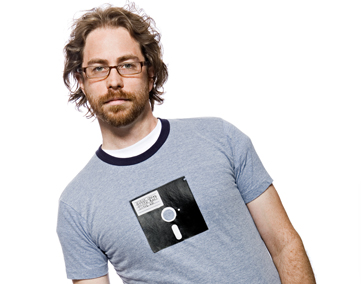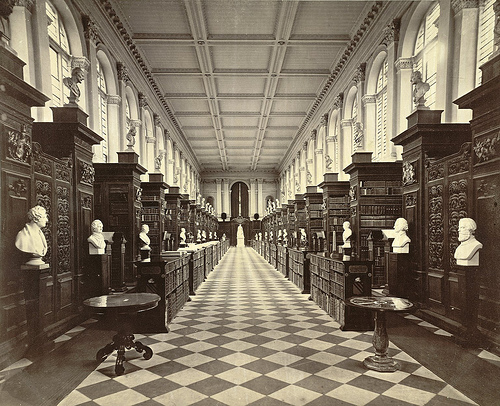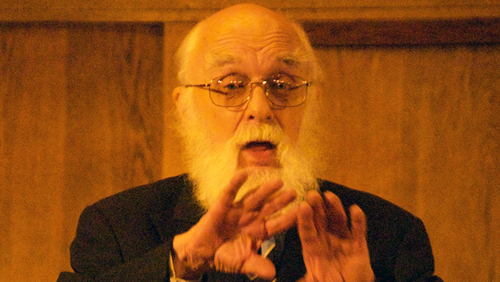Singer/songwriter Jonathan Coulton is so famous that you might never have heard of him. That’s because he’s “internet famous” (i.e. he has a passionate fan base that he’s built up […]
All Articles
USC’s vice provost of innovation, Krisztina “Z” Holly, thinks PhD programs need to change. If you think about it, it takes even the most amazing PhD candidates around the world […]
Jeffrey Hollender, co-founder and CEO of Seventh Generation—the eco-friendly manufacturer of cleaning, paper, and personal care products—stopped by the Big Think offices today to talk about about his thoughts on […]
There is a phenomenon going on out here in the blogosphere called “good information dissemination”, a trait that often distinguishes us lower paid or usually unpaid bloggers from the members […]
Having your body freeze-dried instead of cremated may reduce carbon and mercury emissions, Helen Knight finds in her look at how to make funerals more eco-friendly.
The potential for psychiatry to pathologize normal human behavior is under the spotlight during the ongoing revision of an official list of mental disorders.
The latest Global Peace Index shows the world has become less peaceful in the last year. Liz Ford asks if the rankings should prompt donor governments to rethink aid strategies.
“It is a sad finale for someone who helped break down barriers for women journalists at the center of American power,” so says the L.A. Times of Helen Thomas.
With alleged breaches of the Nuremburg Medical Code in the news, Brian Palmer looks at whether any useful science came out of Nazi experiments on unwilling subjects.
Some see a shallow sitcom or feather-light comedy. Matt Zoller Seitz sees “radical sincerity” in Glee, “one of the most stylistically bold broadcast network shows since Twin Peaks.”
Has how we think about lofty things – like the meaning of life – been hijacked by a deep-pocketed foundation that successfully combines elite research and broad dissemination?
Long-time veteran White House correspondent Helen Thomas is retiring in the wake of comments she made at a recent celebration of the Jewish Heritage at the White House. When Rabbi […]
There was brief speculation in the media about using nuclear weapons to seal up the raging oil leak in the Gulf of Mexico. I think this is a bad idea, […]
Here’s a shocking bit of news: Plans for a big, shiny Museum of Tolerance in Jerusalem are not going smoothly. This multi-part attack last month in the newspaper Haaretz blames […]
Greenbiz.com founder and editor Joel Makower stopped by the Big Think offices today to talk about the business of sustainability. He brought up an interesting point: many of the largest […]
BP should fire its advertising consultants. Today. By the close of business. A 50 million dollar advertising campaign that includes full page ads in newsrags like the New York Times […]
An recent English study has found that exposure to secondhand smoke makes non-smokers more vulnerable to psychological distress and hospitalization for mental illness.
“There was a great fashion in the last century, and it’s still with us, of the unenjoyable novel,” says Martin Amis. “And these are the novels which win prizes.”
Google’s new translation tools are helping to make a truly universal Internet by translating pages into 57 different languages; the company is developing photo and voice recognition, too.
After working in Tanzania, a British doctor reflects on the pitfalls of expressing excessive amounts of sympathy, even in the face of abject poverty.
“Today’s conservatives have conjured a mythic Reagan who never compromised with America’s enemies and never shrank from a fight. But the real Reagan did both those things, often,” says Peter Beinart.
Diet, naps and exercise are three areas important to a good night’s rest, says Dr. Nerina Ramlakhan. Eight hours isn’t a magic number; relax and let your body determine the right amount.
Downloading free music may eventually disenfranchise listeners, says Cris Ruen at The Big Money, because musicians will be desperate for whatever corporate patronage comes their way.
Levels of testosterone in women partly determine how much they trust men, according to a Dutch study published in the U.S. The results support skepticism as an important adaptive trait.
In an effort to spice up the classroom and dodge patient privacy concerns, psychology professors are teaching pathologies of fictional characters, like Twilight’s vampire, Edward.
New companies are creating sophisticated digital backups of individuals that can, in some sense, make one immortal, even if copying consciousness remains beyond current technology.
When the Arno River overflowed in 1966 and flooded Florence, Italy, an art apocalypse nearly took place in that grand Renaissance city. Countless works, including Lorenzo Ghiberti’s Doors of Paradise,Donatello’s […]
Every year, The Buckminster Fuller Challenge awards a $100,000 prize to a project that has the potential to solve humanity’s most pressing problems and significantly improve human quality of life. The […]
Would days spent reading Proust make us more attentive? The Times cover story today implies, Yes. New research argues against the opposing onslaught: video games, iPods; inevitable, en masse drift […]












